My delayed reaction
And why resiliency may not get you as far as you think (July 3, 2022)

What I posted on July 3, 2022:
I thought I was ok.
I really did, maybe in part because I had been so crabby / bitchy in the immediate wake of our news. My bounce was initiated by the idea of a last friendly tumor engaged in a Midwest goodbye; and it got some extra spring as I was hit by a new idea I thought might help other cancer patients—maybe this was the why behind the spot, I thought to myself, feeling the selfless purpose of a martyr. I texted a new cancer buddy vigorously and tried to stay away from the political newsfeeds on social media, which were increasingly upsetting.
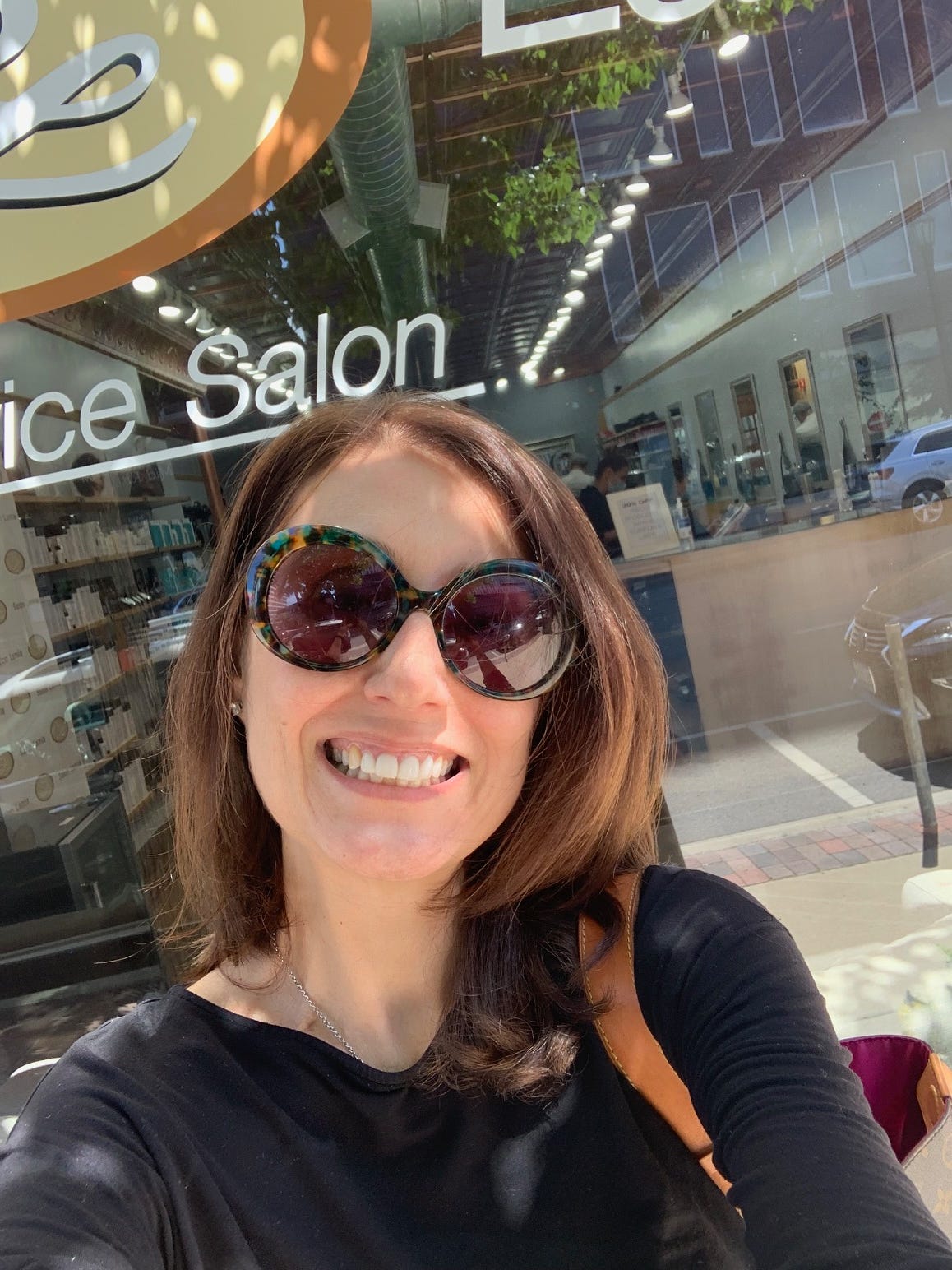
And then it was time to go home—where the twins had just returned from camp and were waiting for me.
After a lazy morning, we started to pull the cottage together for my sister’s family, who would be staying there the following week. Each step took a little longer than expected; so by the time we left, our goal was to get home in time to make dinner for the twins as well as my mother and aunts, who were in town for a bridal shower they were hosting at our place the following morning.
Unfortunately, the trip home included some additional delays; so, by the time we were entering Evanston, two things became clear:
We could throw together a dinner, but it would be a push to get it done before camp-weary heads would crash into plates.
The twins would be in no condition to hear our latest news; it would have to wait until the next day.
Had I been able to recognize this as my root of my anxiety, we may have been able to have a nice evening.
Instead, we walked into a home that had been taken over by three Handzlik women and almost as many vinaigrettes in various states of preparedness on seemingly every counter. One aunt had pulled everything out of our bookcase; another came into the cramped kitchen to ask if we had paint to touch up the nose of a plaster bust I had made in school.
“Is your family’s love language coming into homes and moving things?” whispered Per.
“Yes,” I confirmed, and reminded myself that I was usually happy about this.
I pulled dinner together amidst the shower food, now a race against the clock, while trying (mostly unsuccessfully) to keep myself from snapping at anyone who came within earshot.
Delaney gave us a quick hello, then left the scene; Jack stayed committed to his Nintendo Switch until wandering down to ask what was for dinner—which is pretty much exactly how you want to be greeted by your children whom you haven’t seen in a week and a half.
The first twin’s head crashed two-thirds of the way through dinner. I walked him upstairs while he explained to me all my maternal failings: Jack shares my tendency to blame others when he’s not feeling good himself—and after camp and a late dinner, he was exhausted.
Once the twins were in bed, it was nine o’clock and time for me to start arranging the flowers, which I had offered to do when I was feeling half a day more positive.
And onto this parched mess of suppressed tension and anxiety, someone tossed the lit match of a political debate.
Once it started, I was way too wound up to not be seriously triggered. I saw the alarm register as both Per and Nathan realized what was about to happen and tried to intervene, but I was not to be dissuaded: by damn, I had a right to come unglued in my own home, and I can assure you I took full advantage.
At some point, a much calmer Nathan took over the debate, and I shut up to process flowers. Per made a batch of Sazeracs, and everyone calmed down.
We managed to have a peaceful evening, until we got into bed a bit before 1 am, and I came unglued all over again at Per—because obviously everything that had transpired was HIS FAULT. Because had he READ MY MIND, it would have been obvious how important it was to get there early enough so that I didn’t have to wait FIVE DAYS to tell the twins what was up.
I’m not sure why exactly I expected him to read my mind; I had barely consciously understood it myself.
We told them the next day, calling them into the bedroom and letting them know what the scan showed and what we would do next. Delaney wanted to know how I felt; Jack ran to his bedroom for headphones and the playlist he used when he was feeling anxious in case I wanted to listen.
I don’t want to leave them any earlier than I have to; but in that moment I realized that they—now almost 11 and having spent the last few years growing through our family’s journey, surrounded by people who love them dearly—they would be ok.
This might be the hardest part of cancer.
I try not to think about it too much, because the weight of even the thought is unbearable.
“I can’t die—who would clip their fingernails?” I quipped in the wake of my diagnosis, and many times since then. But mostly, this is a fear I push way, way down, where it stays compartmentalized until some crack allows it to rumble to the surface with a vengeance.
In therapy this week, this is what I really want to talk about: but even still, I find myself talking about everything else until I go there, an immediate flood of tears rising as the first words spill from my lips. Even now, as I type from the seat of an airplane, I find myself weeping and snotty, trying to pull myself together with a paper napkin.
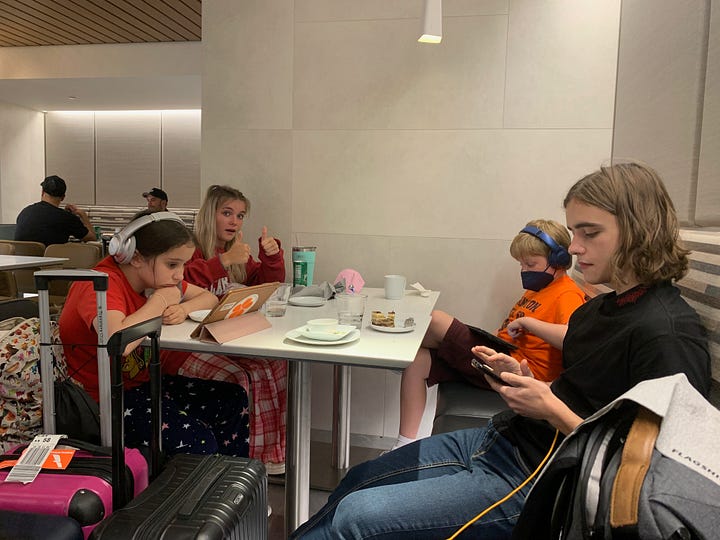
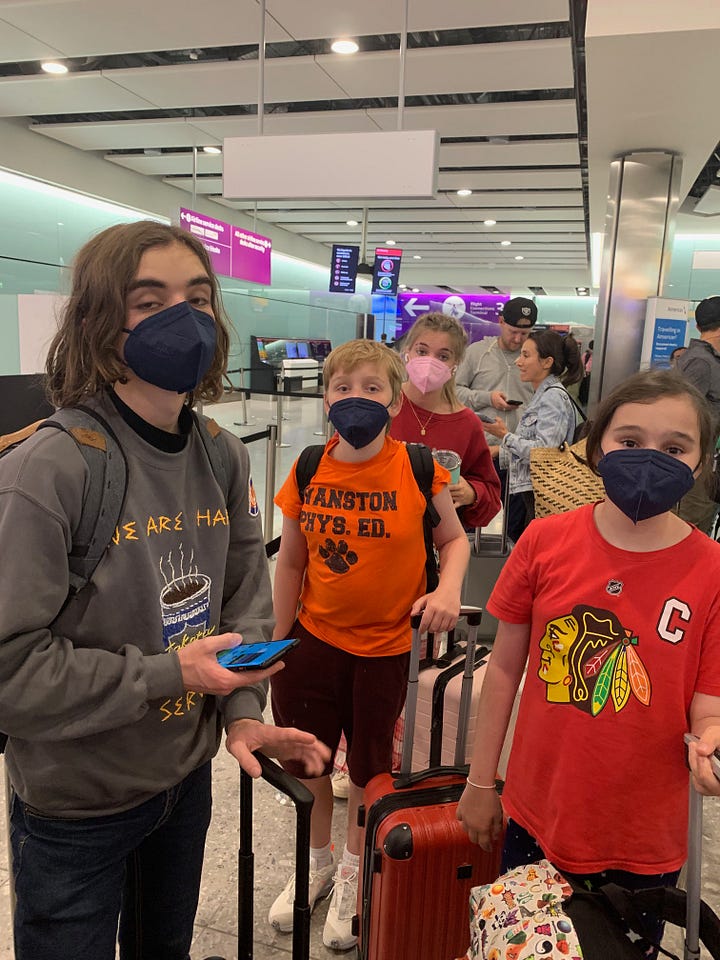
The depth of the emotion I feel is both scary and affirming: I am a mother, and a good one. I love my children, and facing my mortality provides urgent clarity on what they most need as they become tweens: a sense of safety and security as they navigate their own seismic developmental shifts in tandem with the twists and turns of everything cancer does to a family. And this demands I focus not just on my relationship with them, but with everyone who loves them, inclusive of our extended family and their father.
“What was the yelling last night?” they asked later that day, concerned.
“Oh, politics,” answered Per; and having lived in a home long enough to know what happens when Nathan and I debate, this answer settled them right down.
Now, we are on the tarmac at London Heathrow, awaiting our gate and our flight to Oslo soon to follow. We will spend the next two weeks with family, navigating jetlag, new foods, and variable expectations. Doubtless there will be moments of tension; but when it hits, I’ll try to remember that at its root is the yearning to connect with the family you love so much it’s scary.
And more than anything, I don’t want to be afraid of that.
Looking back today:
I’m still wildly embarrassed by this incident.
Even more than a year later, having fully processed why it happened and apologized to those involved, it stings to remember my outrageous behavior. I flew so wildly off the handle that my recollection of the evening feels like an out of body experience, watching as my last sanity drained from my body.
When I visualize the evening, I picture my mother and my aunts, watching aghast amid the vinaigrettes, while Per and Nathan drag me up the back staircase, flailing and screaming, limbs everywhere.
No forced kitchen removal actually happened; but the fact that I picture it this way gives a sense of how very out of control I felt.
And maybe, how much of a struggle it was to try to keep it together after the bad news in the first place.
As a senior in college, before taking my first job interview, the Career Center counseled me to pick three words that described me. The first word was at the tip of my tongue: RESILIENT. My mother was quick to agree when I ran through my final selection with her—I had seemingly always bounced back in the wake of any disappointment. Adding to RESILIENT the words POSITIVE and DRIVEN, I felt I had captured my essence in a way that would appeal to my dream employer, and which would serve me well for almost thirty years of a career in advertising.
Reading The Myth of Normal: Trauma, Illness and Healing in a Toxic Culture, I was stunned to come across a paragraph which called out “resilient” specifically as a positive trait that very possibly wasn’t. What is resiliency after all, questioned the text, but the ability to shove one’s feelings down and press forward?
Yikes.
I saw myself in that query immediately.
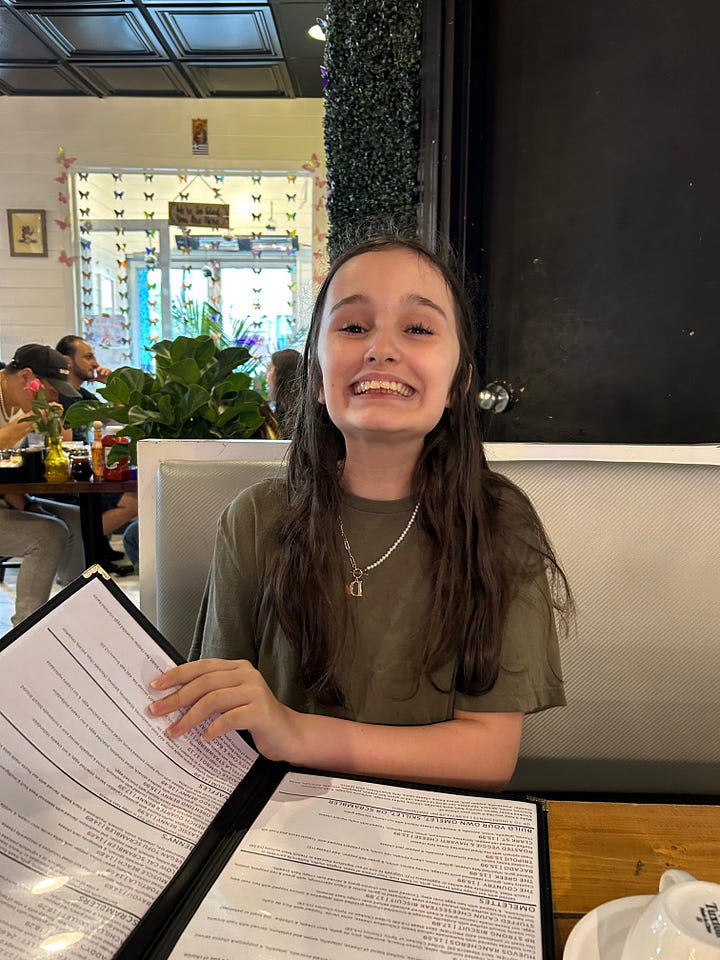
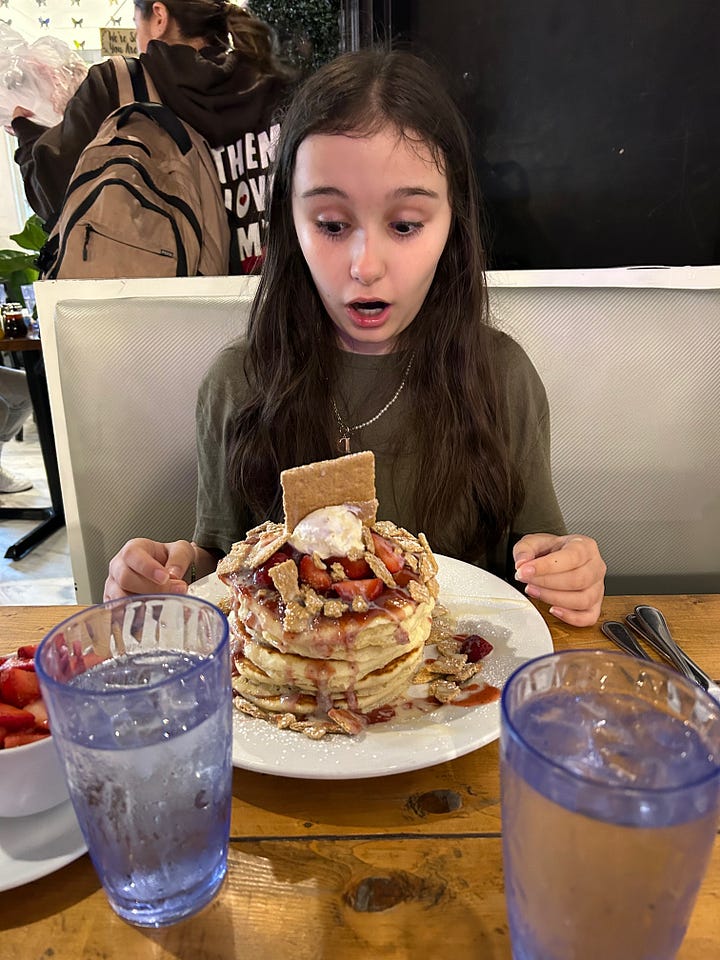
Not many days later, seventh grade class schedules came out; and Delaney’s reaction was almost as dramatic as the one Evelyn had experienced five years earlier. It must be echoed across middle schools everywhere: “none” of the new friends you made in classes in sixth grade are in your classes for seventh. This realization likely sets off a wave of FOMO experienced individually across every seventh grader who has come to see their friends as the fulcrum of their whole world.
Having seen Evelyn push through this particular worry in less than a week, every maternal bone in my body wanted me to find a way to assure Delaney that things would be all right, to soothe her misery and quiet her proclamations of doom.
In the end, I realize I found a narrative loophole to say exactly what I wanted to say: that I believed in her, and Evelyn’s experience made me confident that she, too, could make new friends. But then told her that as much as I wanted to help her feel good in the moment, I knew I probably shouldn’t. I explained my new insight about whether resiliency and the ability to get over something is actually a good thing; maybe what she really needed was to feel upset for a while.
“If it’s ok, I’m just going to sit here with you while you’re sad,” I told her.
She asked me to rub her head and I did. I asked a few questions but offered no solutions, mostly just affirming how upsetting it all was. Then we were quiet for a while, and I kept playing with her hair.
“It’s ok, Mommy. You don’t have to stay here anymore,” she eventually told me.
“Thanks, Delaney. I’ll leave if you’re ready to go to sleep, but I’m in no rush to go.”
“Don’t you have something more important to do? Don’t you have to work?”
“No, I don’t have anything else more important than being here with you right now.” I smiled, realizing it was true.
“I love you, Mommy,” she said sleepily, and she laid back to let me keep rubbing her head as she closed her eyes and drifted off.
The next morning, she woke up happy and excited to be meeting a friend to hang out—she didn’t say a word about the previous night’s worry. Cautiously asking her about classes a little later, she breezily replied, “Oh, it’s fine. Nobody thinks they have good classes.”
While possibly true, I’d also like to believe that in part she felt better having just gotten a bunch out of her system.
That said, I’m bracing myself for more to come. I’m starting to realize how much she’s been stuffing and for how long—and it’s just one more reason that this week’s upcoming scan feels weighty and important. Because if I’m still healthy one year later, I am hoping she’ll finally feel safe enough to begin her own healing.
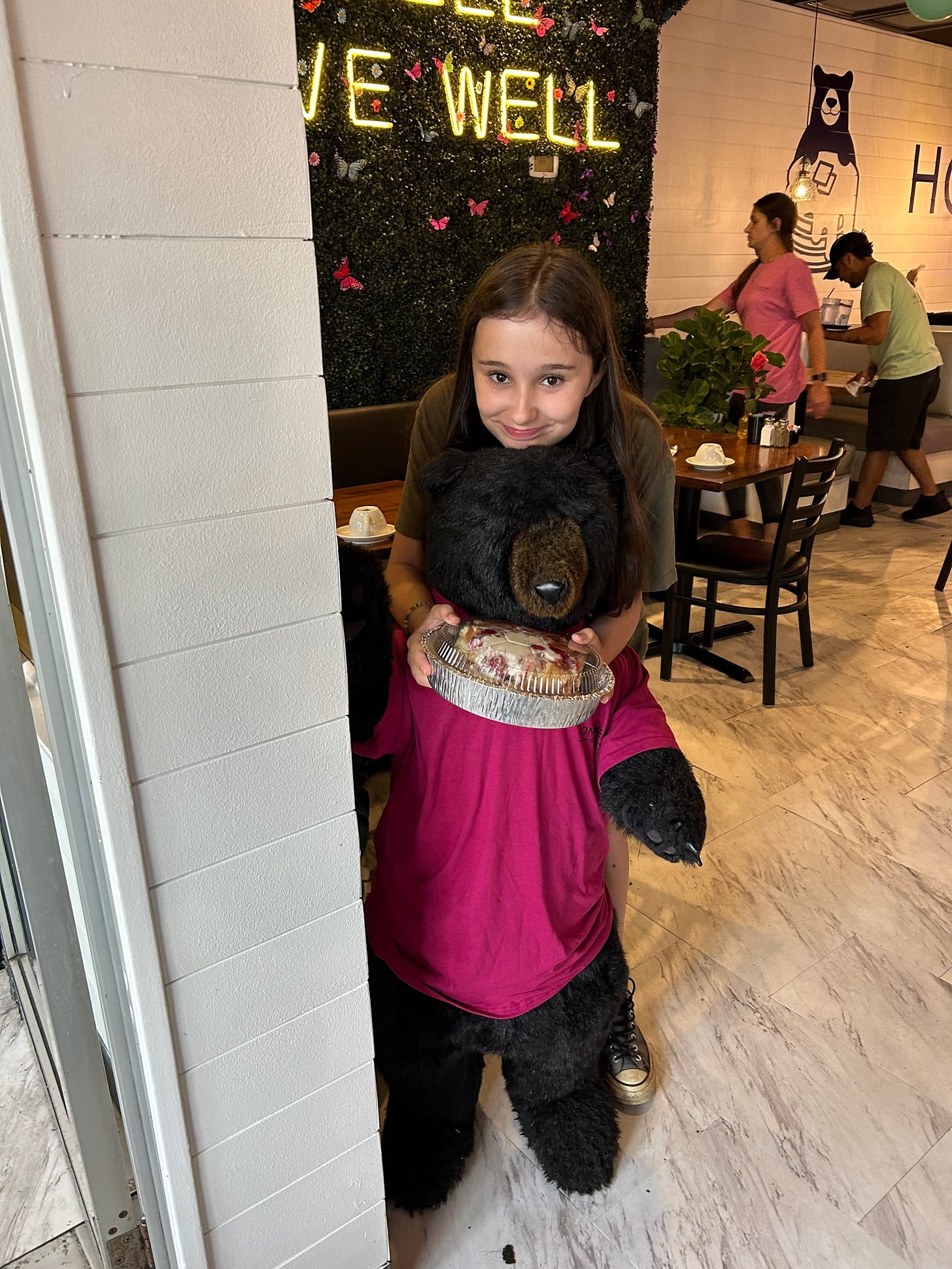





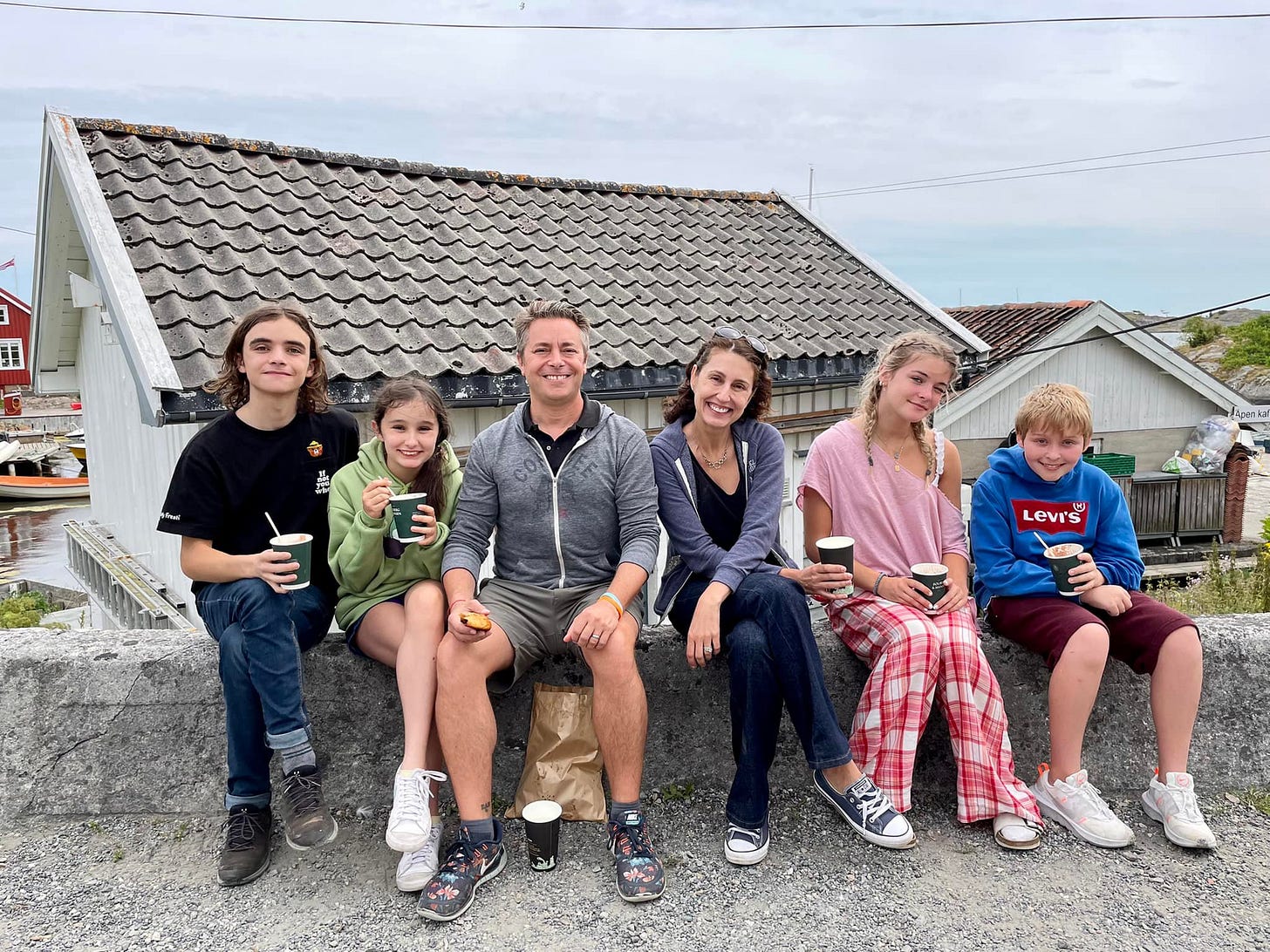
As always I find the way you share your journey so incredibly beautiful in its raw authenticity. I now have a new book title to add to my list of what I hope to read and learn from as I continue navigating this life with cancer and I continue to be so grateful for your friendship and the light you share. 💜kris